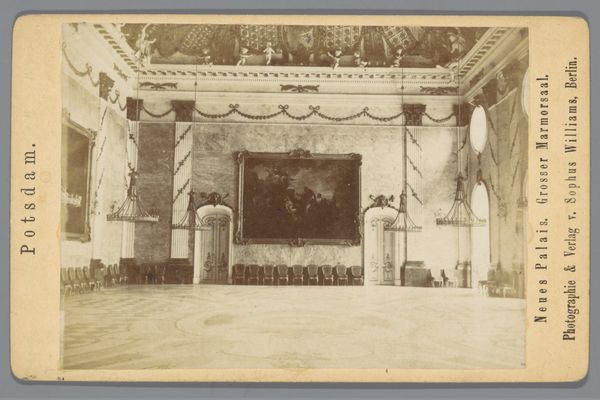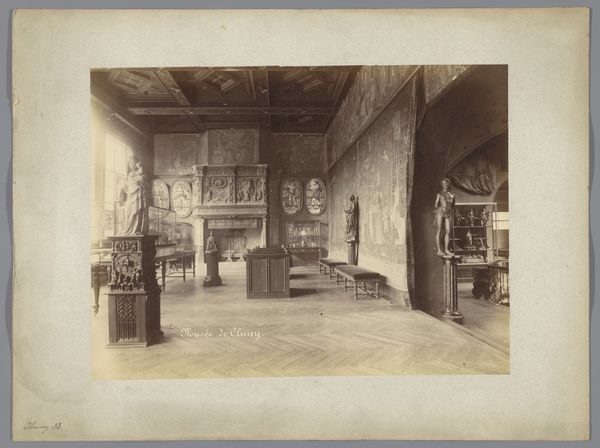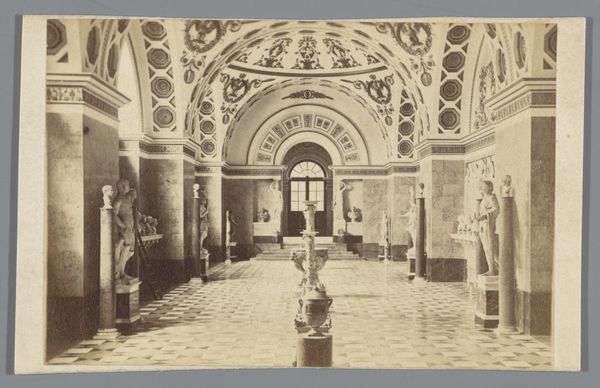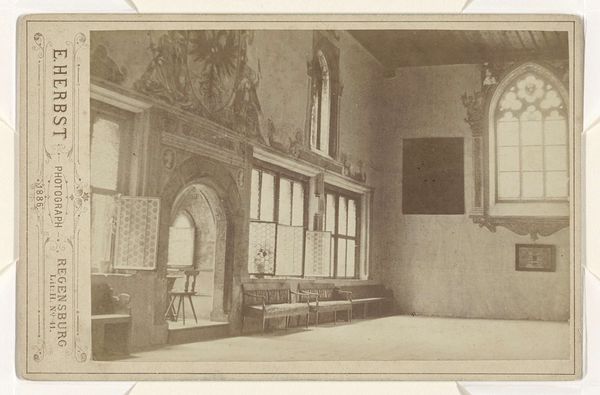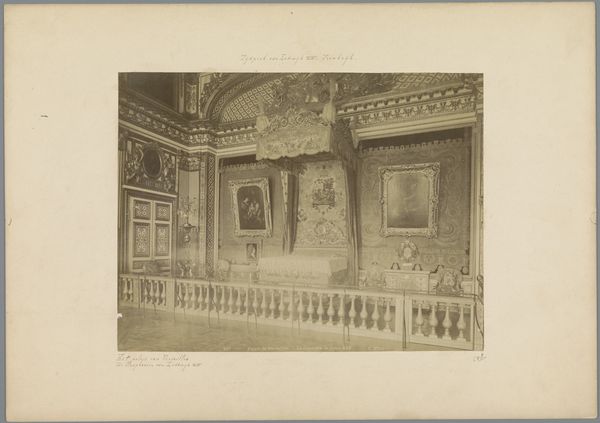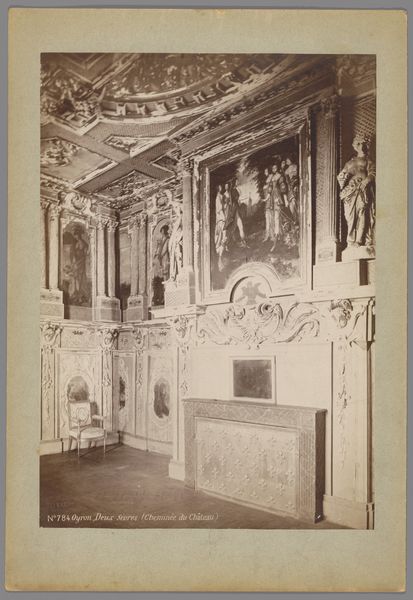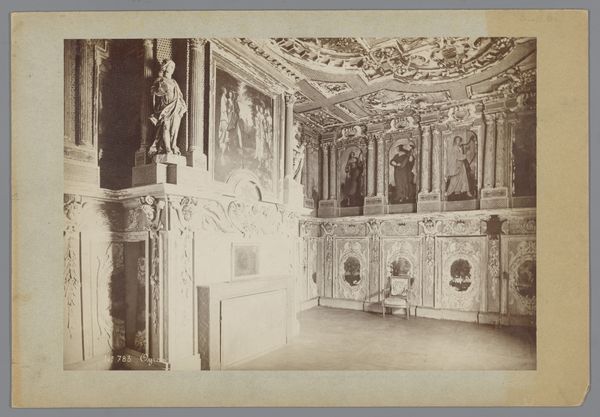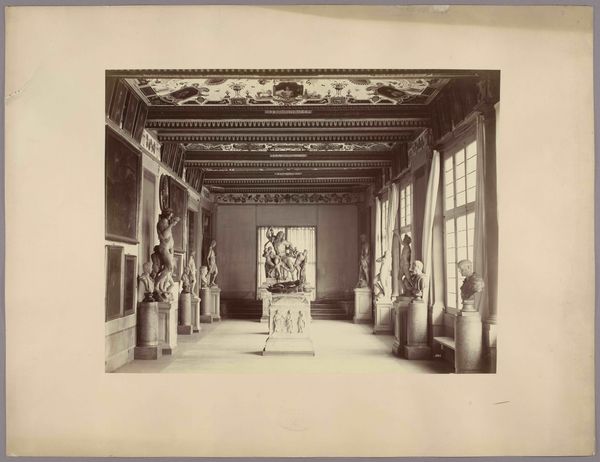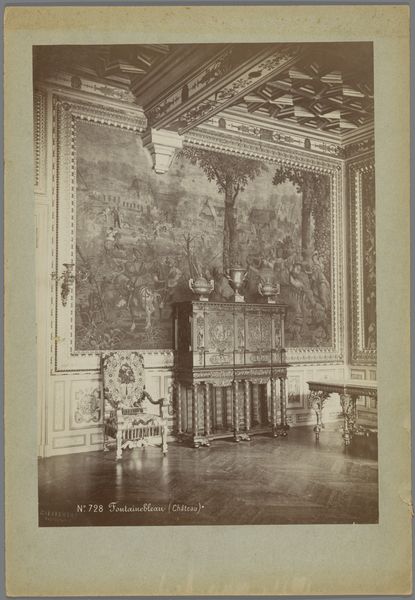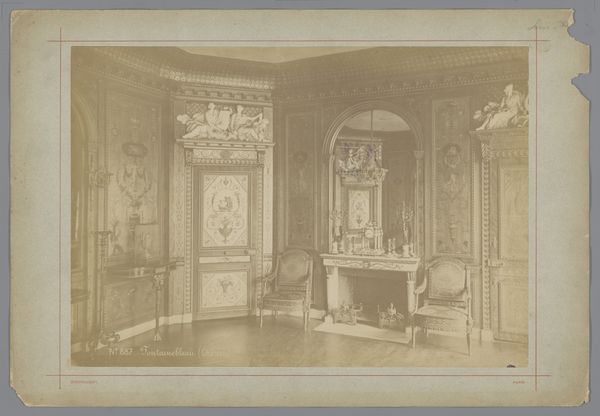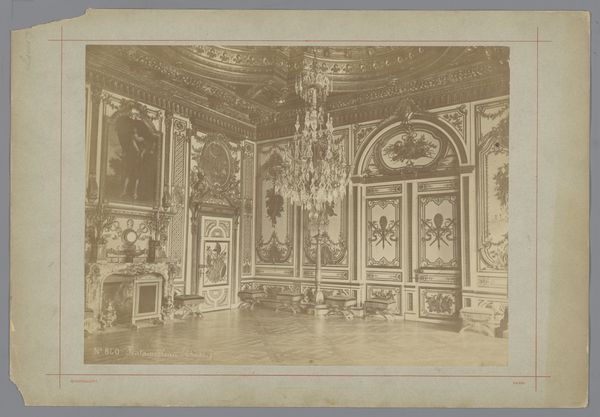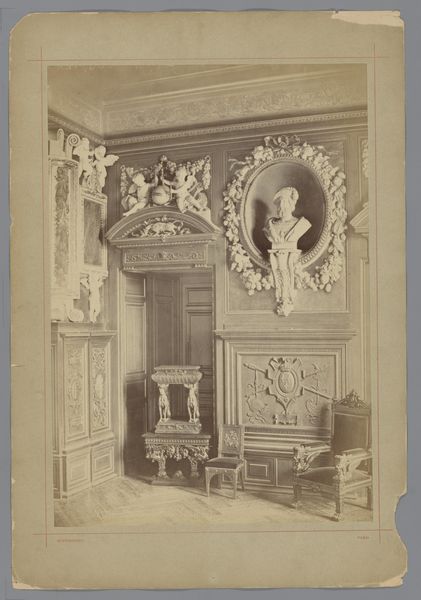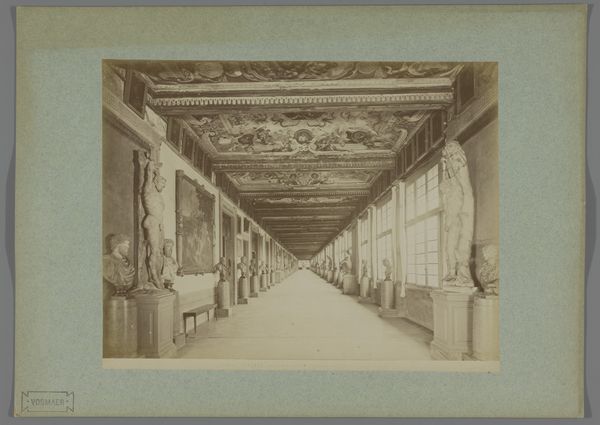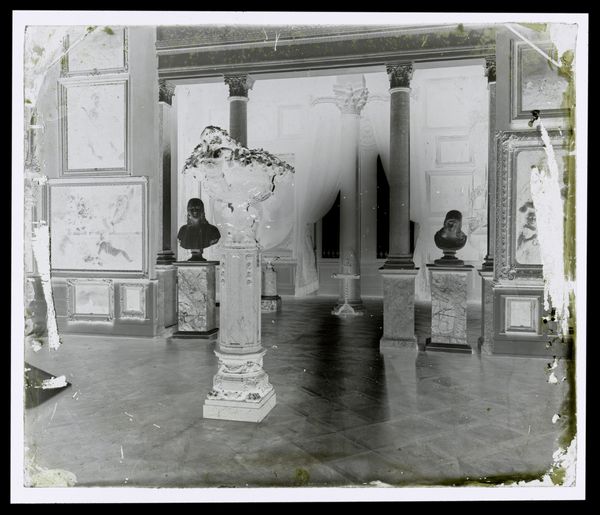
print, photography, architecture
# print
#
photography
#
geometric
#
ancient-mediterranean
#
orientalism
#
cityscape
#
genre-painting
#
architecture
Dimensions: height 61 mm, width 106 mm
Copyright: Rijks Museum: Open Domain
Editor: This is a photograph from between 1855 and 1885 by E. Reulbach, titled "Assyrische zaal in de Glyptothek in München", which translates to "Assyrian Hall in the Glyptothek in Munich." It's a view of a room adorned with recreations of Assyrian reliefs. It's fascinating how they've staged this space. What do you make of the impulse behind recreating an ancient Assyrian space within a 19th-century museum? Curator: The Glyptothek’s Assyrian hall represents a fascinating moment in the 19th century, one of burgeoning archaeological discoveries and the public’s growing appetite for understanding ancient civilizations. Reulbach’s photo captures the museum's ambition not just to display artifacts, but to construct an immersive educational experience. How do you think this kind of reconstruction shapes the viewer’s understanding of Assyrian culture? Editor: Well, seeing it presented this way, I suppose it implies a certain power dynamic. The Assyrian culture is presented as something to be observed, almost consumed, within a European context. The museum itself becomes a symbol of control. Curator: Precisely. Think about the context of Orientalism. These reconstructions weren’t necessarily aiming for accurate representation; they often reflected contemporary European fantasies and political agendas. What’s lost when we "recreate" another culture’s space? Editor: Authenticity, obviously, but also perhaps an understanding of the original function and context. It becomes a kind of staged performance rather than a genuine encounter. Curator: Indeed. And what does this say about the museum's role – is it an educator, a stage for power dynamics, or something in between? Editor: I guess it’s all of those things, a complicated intersection of history, power, and representation. Thanks; I see this photograph in a completely different light now. Curator: My pleasure. Considering art as a reflection of its time and the society that creates and views it always deepens the experience.
Comments
No comments
Be the first to comment and join the conversation on the ultimate creative platform.
